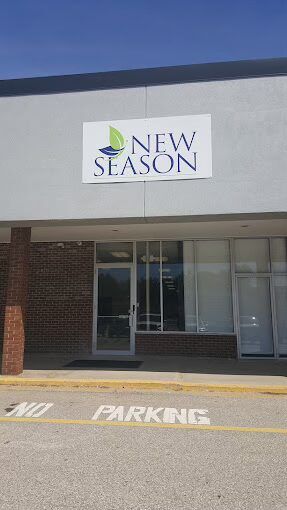Manchester, NH Drug Rehabs
Showing to of 19 results
-
Better Life Parnters
Levels of Care: Outpatient
Payment Options: Cash or self-payment, Federal military insurance (e.g., TRICARE), Medicaid, Medicare, Private health insurance, State-financed health insurance plan other than Medicaid
-
Better Life Partners
Levels of Care: Outpatient,
Payment Options: Cash or self-payment, Federal military insurance (e.g., TRICARE), Medicaid, Medicare, Private health insurance, State-financed health insurance plan other than Medicaid,
-
Better Life Partners
Levels of Care: Outpatient,
Payment Options: Cash or self-payment, Federal military insurance (e.g., TRICARE), Medicaid, Medicare, Private health insurance, State-financed health insurance plan other than Medicaid,
- Ad

Topsail Addiction Treatment
Levels of Care: Intensive Outpatient, Intervention, Medication Assisted Treatment, Multiple Levels of Care, Outpatient, Partial-Hospitalization, Telehealth
Payment Options: Aetna, Anthem, Beacon, Blue Cross Blue Shield, Cigna, ComPsych, Harvard Pilgrim, Health Net, Humana, Insurance Accepted, Magellan Health, Mass Health, MBHP, MultiPlan, Optima Health, Optum, Private Pay, Tufts Health Plan, United Healthcare
-
Dismas Home of New Hampshire
Levels of Care: Outpatient, Residential/24-hour residential
Payment Options: Cash or self-payment, Federal military insurance (e.g., TRICARE), Medicaid, Medicare, Private health insurance, State-financed health insurance plan other than Medicaid,
-
Farnum Center
Levels of Care: Outpatient, Residential/24-hour residential, Hospital inpatient/24-hour hospital inpatient,
Payment Options: Cash or self-payment, Federal military insurance (e.g., TRICARE), Medicaid, Medicare, Private health insurance, State-financed health insurance plan other than Medicaid,
-
Groups Recover Together
Levels of Care: Outpatient, Residential/24-hour residential, Hospital inpatient/24-hour hospital inpatient,
Payment Options: Cash or self-payment, Federal military insurance (e.g., TRICARE), Medicaid, Medicare, Private health insurance, State-financed health insurance plan other than Medicaid,
- Ad

Spring Hill Recovery
Levels of Care: Aftercare, Counseling, Detox, Full Spectrum of Care, Inpatient, Intensive Outpatient, Medication Assisted Treatment, Multiple Levels of Care, Outpatient, Partial-Hospitalization, Residential, Sober-living home
Payment Options: Aetna, AllWays Health Partners, Anthem, Beacon, Blue Cross Blue Shield, Cigna, ConnectiCare, E4Health, Financing Available, Harvard Pilgrim, Highmark Blue Cross Blue Shield, Insurance Accepted, MultiPlan, Optum, PHCS, Private Pay, Regence, Tufts Health Plan, UMR, UniCare, United Healthcare
-
James J Foster Associates Ltd
Levels of Care: Outpatient, Residential/24-hour residential, Hospital inpatient/24-hour hospital inpatient,
Payment Options: Cash or self-payment, Federal military insurance (e.g., TRICARE), Medicaid, Medicare, Private health insurance, State-financed health insurance plan other than Medicaid,
-
Manchester Comprehensive Treatment Ctr
Levels of Care: Outpatient, Residential/24-hour residential, Hospital inpatient/24-hour hospital inpatient,
Payment Options: Cash or self-payment, Federal military insurance (e.g., TRICARE), Medicaid, Medicare, Private health insurance, State-financed health insurance plan other than Medicaid,
-
Manchester Metro Treatment Center
Levels of Care: Outpatient, Residential/24-hour residential, Hospital inpatient/24-hour hospital inpatient,
Payment Options: Cash or self-payment, Federal military insurance (e.g., TRICARE), Medicaid, Medicare, Private health insurance, State-financed health insurance plan other than Medicaid,
- Ad

New Season Treatment Center – Franklin
Levels of Care: Counseling, Intensive Outpatient, Medication Assisted Treatment, Outpatient, Telehealth
Payment Options: Beacon, Blue Cross Blue Shield, Humana, Insurance Accepted, Magellan Health, Medicaid, Medicare
-
Mental Health Center of
Levels of Care: Outpatient, Residential/24-hour residential, Hospital inpatient/24-hour hospital inpatient,
Payment Options: Cash or self-payment, Federal military insurance (e.g., TRICARE), Medicaid, Medicare, Private health insurance, State-financed health insurance plan other than Medicaid,
-
Mental Health Center of
Levels of Care: Outpatient, Residential/24-hour residential, Hospital inpatient/24-hour hospital inpatient,
Payment Options: Cash or self-payment, Federal military insurance (e.g., TRICARE), Medicaid, Medicare, Private health insurance, State-financed health insurance plan other than Medicaid,
-
Mental Health Center of
Levels of Care: Outpatient, Residential/24-hour residential, Hospital inpatient/24-hour hospital inpatient,
Payment Options: Cash or self-payment, Federal military insurance (e.g., TRICARE), Medicaid, Medicare, Private health insurance, State-financed health insurance plan other than Medicaid,
- Ad

Aftermath Addiction Treatment Center
Levels of Care: Intensive Outpatient, Outpatient, Partial-Hospitalization, Telehealth
Payment Options: Aetna, AmeriHealth, Anthem, Beacon, Blue Cross Blue Shield, Cigna, Health Net, Insurance Accepted, Magellan Health, Optima Health, Private Pay, United Healthcare, Value Options
-
Metro Treatment of New Hampshire
Levels of Care: Outpatient, Residential/24-hour residential, Hospital inpatient/24-hour hospital inpatient,
Payment Options: Cash or self-payment, Federal military insurance (e.g., TRICARE), Medicaid, Medicare, Private health insurance, State-financed health insurance plan other than Medicaid,
-
New England Counseling Services LLC
Levels of Care: Outpatient, Residential/24-hour residential, Hospital inpatient/24-hour hospital inpatient,
Payment Options: Cash or self-payment, Federal military insurance (e.g., TRICARE), Medicaid, Medicare, Private health insurance, State-financed health insurance plan other than Medicaid,
-
WestBridge
Levels of Care: Outpatient, Residential/24-hour residential, Hospital inpatient/24-hour hospital inpatient,
Payment Options: Cash or self-payment, Federal military insurance (e.g., TRICARE), Medicaid, Medicare, Private health insurance, State-financed health insurance plan other than Medicaid,
Loading results...
No listings found.
Showing to of 19 results
Feature Your Center
Ready to connect with treatment seekers across the country? Enter your information to learn about our advertising options and get in contact with our development team.